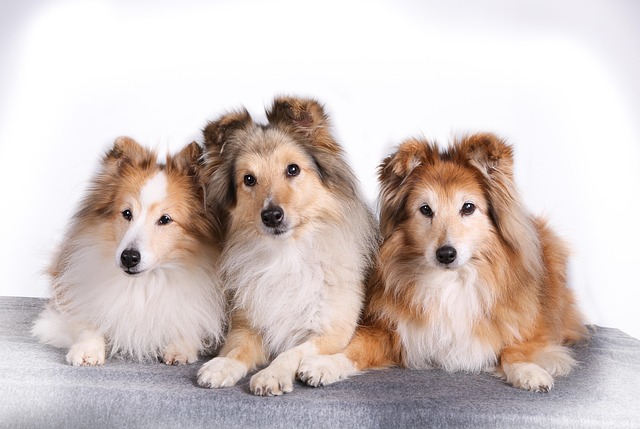
How can I tell if my dog's heatstroke is serious
Let’s be real: It’s a sticky August morning in Los Angeles, and you took your 2-year-old Golden Retriever, Max, for a walk a little later than usual
German Shepherds are active, muscular dogs—so if your pup is looking too lean, it’s often a matter of boosting calories without sacrificing nutrition. Skip the junk food; these dogs need nutrient-dense meals to support their bones and energy, especially if they’re working dogs or recovering from illness. Start by picking a high-quality dry kibble formulated for large, active breeds, as these have more protein and healthy fats than regular options.
Adding healthy supplements to their meals can help pack on weight gradually. Mix in a spoonful of plain Greek yogurt or canned pumpkin for extra calories and fiber—both are gentle on their stomachs. For more fat, drizzle a little olive oil over their food or add a handful of cooked quinoa; these ingredients are easy to find at local grocery stores and fit right into a balanced diet.
Cooked, lean meats are a great way to boost protein intake, which helps build muscle. Chicken breast, turkey, or lean beef—all cooked thoroughly, no seasonings—can be chopped up and mixed into their kibble. Avoid fatty meats like bacon or sausage, though; too much saturated fat can lead to digestive issues or even pancreatitis, which is common in larger breeds if their diet is off.
 It’s important to check local regulations when adjusting your German Shepherd’s diet, especially if you’re using commercial supplements. Some regions have rules about pet food ingredients, and certain products might not be approved for sale if they don’t meet safety standards. Also, if your dog is underweight due to a health issue, many areas require a vet’s diagnosis before using prescription diets—skipping this step could mean missing an underlying problem.
It’s important to check local regulations when adjusting your German Shepherd’s diet, especially if you’re using commercial supplements. Some regions have rules about pet food ingredients, and certain products might not be approved for sale if they don’t meet safety standards. Also, if your dog is underweight due to a health issue, many areas require a vet’s diagnosis before using prescription diets—skipping this step could mean missing an underlying problem.
Feed smaller, more frequent meals instead of one or two large ones. German Shepherds have deep chests, so eating too much at once can cause bloat, a life-threatening condition. Try three to four meals a day, and monitor their weight weekly with a scale—aim for a slow gain of 1-2 pounds per week, as rapid weight gain strains their joints. Pair meals with light exercise, like short walks, to help them build muscle instead of just fat.
Getting your German Shepherd to gain weight takes patience and the right food choices, but it’s totally manageable. Stick to nutrient-dense ingredients, follow local pet food rules, and check in with your vet if you’re worried about their progress. With a balanced diet tailored to their needs, your pup will soon have the healthy, muscular build that makes German Shepherds so iconic.

Let’s be real: It’s a sticky August morning in Los Angeles, and you took your 2-year-old Golden Retriever, Max, for a walk a little later than usual

You're enjoying a summer afternoon at the park when you notice your dog has stopped panting and appears disoriented - their gums are bright red

Let’s paint the picture: You’re in your Denver apartment, watching your 4-year-old Boston Terrier, Ruby, plop down mid-play session with her favorite toy

Many dog owners notice their pets nails seem shorter after regular walks,but how much does this daily activity actually help?The answer depends on where you walk—concrete sidewalks or asphalt streets gently file nails as a dog's paws hit the ground

Most dog owners notice their pup scooting across the carpet at some point, but few connect it to impacted anal glands. These small sacs near a dog’s rectum secrete a scent for marking territory

Most vets agree that regular dog teeth cleaning is key to avoiding painful dental issues later. For healthy adult dogs, a professional cleaning at the vet’s office every 12 to 18 months usually works well.